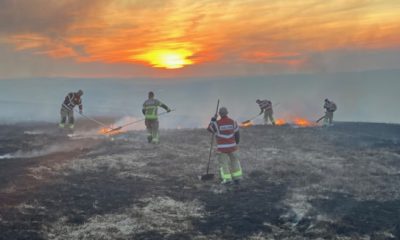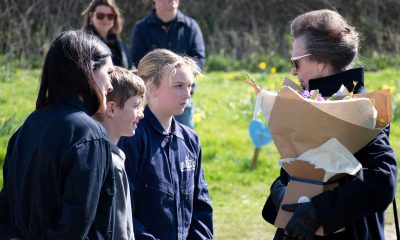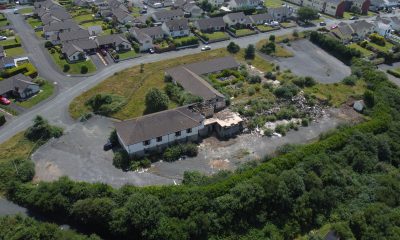Farming
FUW’s ‘Buy The Welsh One’ campaign reaches the Sahara
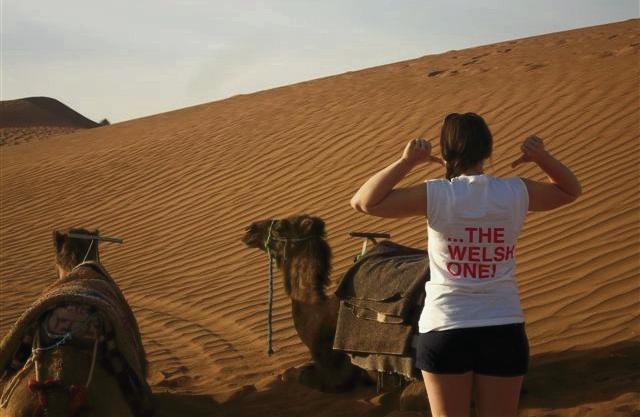
 THE FARMERS’ Union of Wales’ “Help Cut Food Miles…Buy The Welsh One” message already promoted in a variety of events at the Welsh Assembly, House of Lords and European Parliament has cropped up – in the middle of the Sahara Desert.
THE FARMERS’ Union of Wales’ “Help Cut Food Miles…Buy The Welsh One” message already promoted in a variety of events at the Welsh Assembly, House of Lords and European Parliament has cropped up – in the middle of the Sahara Desert.
That’s because the union’s Anglesey county branch was a sponsor of Sian Pierce Roberts, of Cefn Arthen, Brynsiencyn, who has just returned from a seven-day, 115km camel trek through the Sahara where she proudly wore the FUW’s “Buy The Welsh One” campaign tee-shirt. Her father Gwyn and mother Nerys are FUW members and Nerys runs the “Pobty’r Bryn” award-winning bakery renowned for its Bara Brith, Taffi Triog (treacle toffee), oat cakes and shortbread. Sian, who recently started working as a midwife after completing a BA course in midwifery at Bangor University, took part in the sponsored Sahara Trek to raise money for SANDS (Stillbirth and Neonatal Death Society). “Since working as a midwife, I have become familiar with the SANDS charity who do a wonderful job providing support for parents, families and friends who have lost a baby,” she said. “The charity supports further research that endeavours to reduce these numbers. “Whilst I’m still young and healthy, I decided that I wanted to help the charity and agreed to participate in the ‘trek’ through the Sahara desert. It was a memorable experience, to say the least. “I had to raise a minimum sponsorship of ?2,250 towards the trip, so I decided to organise events such as concerts, bag packing in supermarkets and barbecues. I wanted to raise money through events where the public would gain something back. “Throughout the 18 months of fund-raising, I received great support from a variety of people, such as local businesses, friends and family and I’m extremely grateful to the FUW for sponsoring me.” In her spare time, Sian enjoys taking part in young farmers’ competitions and is the current chairman of the YFC movement in Anglesey. “Bodedern YFC organised a party and Rhosybol YFC organised a pancake night with the proceeds going towards sponsoring the trip, so I am extremely grateful to them all for the support. “Before setting off I didn’t know anyone on the trip, so I met 20 people for the first time at Heathrow airport on the morning of March 8. We all came from different backgrounds, jobs and parts of the UK but all of us had one thing in common – we were all there to raise money for a charity close to our hearts. “Within days we all became firm friends as we were with each other 24 hours a day for nine days, and we’d support and encourage each other throughout the journey. I organised the trip through a London company called Skyline, so as well as the 21 people we also had three team leaders, three men who would be in charge of the camels, two chefs and one doctor – so we were in safe hands! “We flew from Heathrow to Casablanca, which is at the top of Morocco, then an hour’s flight from Casablanca to Ouazazate, and a fivehour bus ride to the desert, where we met seven camels who were also venturing on the journey to carry our water, bags, food packages and the doctor’s package. “We were about to walk for seven days, with two travelling days either side. From day to day, we got up by 6am, had breakfast and then start walking. We walked for about four to five hours in the morning and two to three hours in the afternoon – apart from one day, when we got a little bit lost, so we walked for 11 hours! “It’s safe to say we definitely completed the 100km but the leader thought it was close to 115km by the end of the trip. The trip varied on a daily basis. The sand piles got bigger and bigger the further we got into the desert, and if we were walking on a flat piece, the ground got dusty, with small and large stones under foot. “There were a few things that would complicate your day and they affected everyone in different ways. One thing I noticed was that we take simple things like clean water, showers and electricity for granted. I’ve never used so many baby wipes and dry shampoo! “It was approximately 30 degrees and the temperature would drop down to freezing during the night. So we had to wrap up warm and make sure that we had a good sleeping bag! I did expect it to be boiling hot but, to be honest, it was not too bad as there was a nice breeze whilst we were walking. “But one of the things I did not expect was the rain – and, sure enough, one night we had heavy rain – and we were in bed by 8pm! The leader informed us the next day, of all the years he has worked in the desert, only once has he experienced rain in the Sahara! “We had been advised prior to the start of the trip to bring ski glasses with us, in the event of a sandstorm.? And sure enough, I experienced three storms whilst I was in the Sahara and they were very vigorous! “It was extremely difficult to walk through these sandstorms as we could only see two feet in front of us! Although I did not want a storm and rain, I’m glad I’ve had these experiences to add to the adventures of the trip. “The chefs and the camel crew would put two tents up every night – one to cook in and one to eat in – and they would always prepare a feast for us. “In the mornings, if we were lucky, we had bread and porridge for breakfast, salad and fruit for lunch and a three-course meal that included soup, vegetables, meat and fruit for dinner. The food was wonderful and it was miraculous what the crew could achieve in such a small tent. “The trip is an experience to remember. I’ve had the privilege of seeing a foreign country, meeting people from different backgrounds and, most importantly, I’ve had the opportunity to raise money for a great charity! “I’d like to thank everyone for all their support, and with their help I’ve raised ?3,400 for SANDS.” Sian will be telling the story of her fund-raising Sahara trek when she attends FUW Anglesey’s annual general meeting on Thursday June 26 (7.30pm) at Tafarn-y-Rhos, Rhostrewfa, as a guest speaker.
Farming
New research network aims to reduce dairy farming carbon footprint
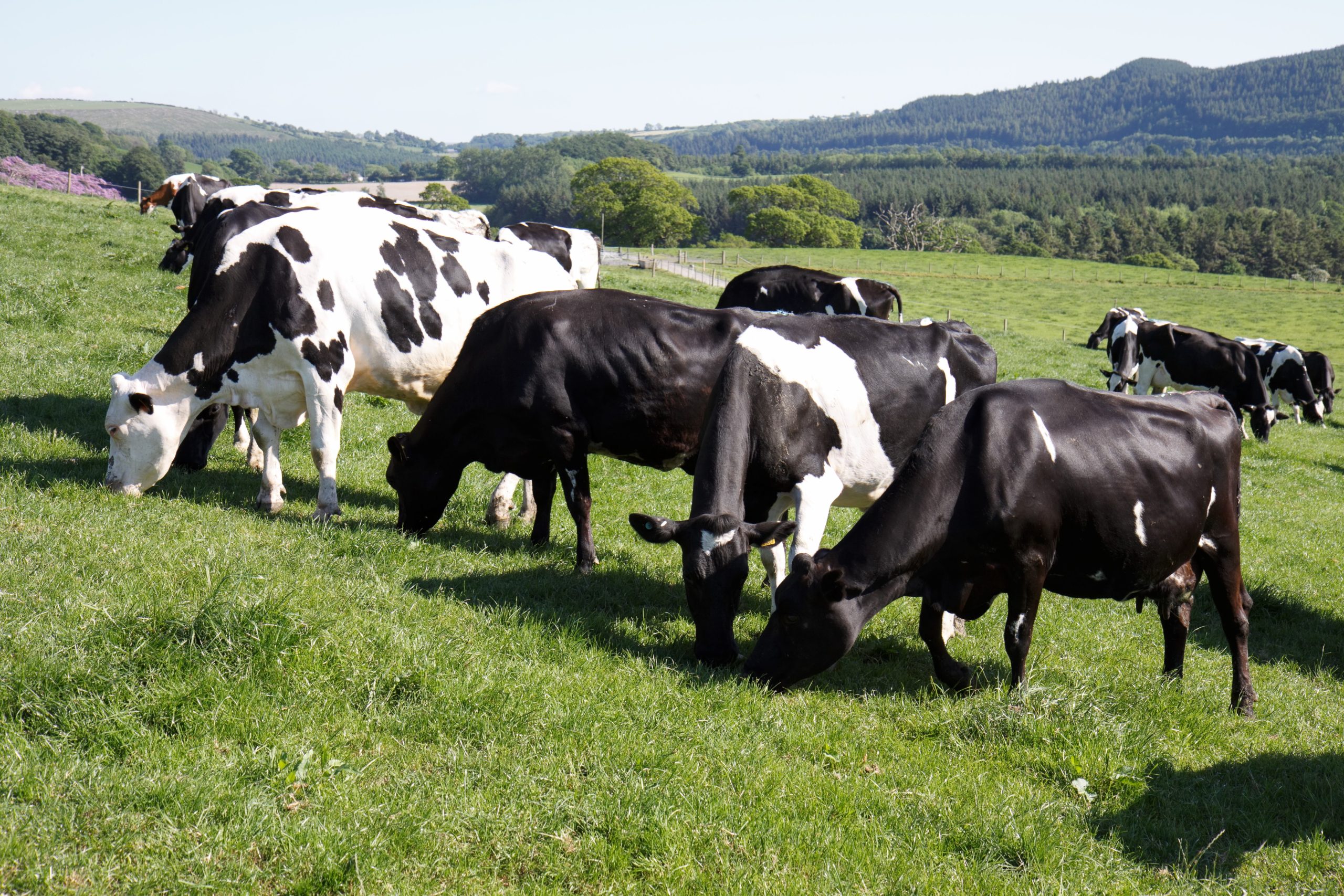
INNOVATIVE strategies to significantly reduce high levels of greenhouse gas emissions in the dairy industry are being trialled in a major new research project.
The pioneering initiative will test and assess the effectiveness of a range of science-based solutions aimed at making dairy farming more economically and environmentally sustainable.
A network of 56 dairy farms is being set up across four major dairying regions in the UK, including West Wales and South/South-West England; Northern Ireland; Cumbria and South-West Scotland, and North-West England.
The network will provide a series of demonstration hubs where farmers, industry, scientists and policymakers can work together to deploy and evaluate the impact of the new measures.
Aberystwyth University is one of ten leading research institutions contributing to the UK Dairy Carbon Network project, which is led by the Agri-Food and Biosciences Institute (AFBI).
The project will be developing a toolkit of practical measures which dairy farmers can choose to adopt in a bid to reduce their herd’s carbon footprint.
Options could include:
- improving forage quality through science developed by plant breeding programmes at Aberystwyth University’s Institute of Biological, Environmental and Rural Sciences (IBERS)
- following the latest research on best practice for silage making
- reducing the protein content of dairy cow feeds to improve nitrogen use efficiency.
Professor Jon Moorby, Chair in Livestock Science at Aberystwyth University, said: “Dairy cows contribute significantly to Wales’s rural economy and produce high quality food for people from grass and other forages. However, cows, like other ruminant animals, produce greenhouse gases like methane as a by-product of converting grass into milk.
“Many dairy farmers are already taking steps to help minimise greenhouse gas production from their cows and this project aims to demonstrate further what can be achieved across all types of dairy farms to help improve their sustainability. This is a collaborative initiative and we want to work closely with farmers as well as the wider industry and policymakers.”
Professor Steven Morrison, Head of Sustainable Livestock Systems at AFBI, said: “Our goal with the project is to drive meaningful change in the dairy sector by applying research directly to real-world farming conditions and measuring the impact.
“By working closely with farmers and using advanced measurement and modelling techniques, we aim to measure and report significant reductions in the carbon emissions from dairy farming in the UK. During the formation of the project, the interest from across the agricultural sector was immense, with over 50 organisations offering support and indicating a willingness to get involved in the project once commissioned.”
The UK Dairy Carbon Network Project is funded by the UK Government’s Department of Environment, Food and Rural Affairs (Defra). Led by AFBI, the UK wide consortium of organisations also includes the Agriculture and Horticulture Development Board (AHDB); AgriSearch; UK Agritech Centre; ADAS; Aberystwyth University; Queen’s University Belfast; Harper Adams University; University of Reading; Newcastle University and Scotland’s Rural College.
Farming
Farmers urged to monitor winter wheat as early yellow rust raises concerns
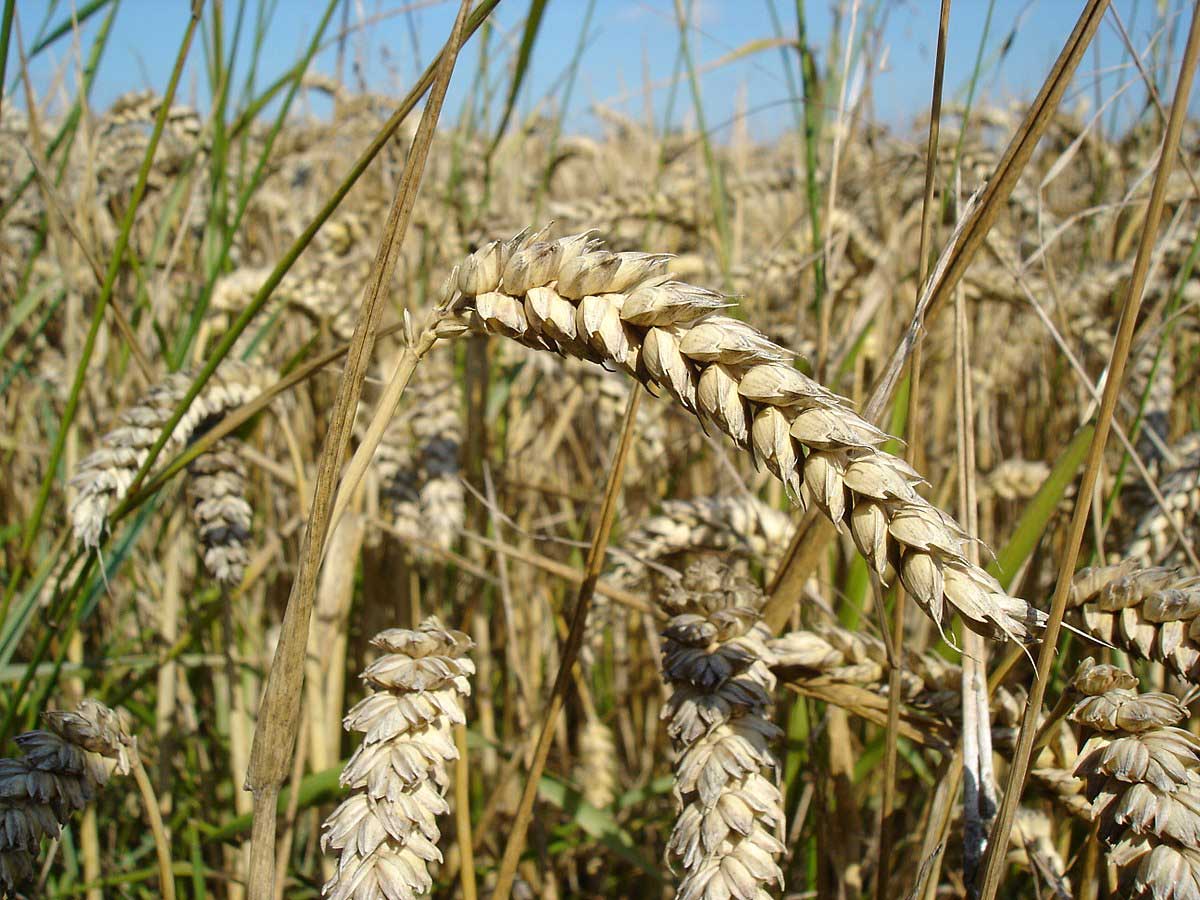
UNUSUAL early observations of yellow rust on several winter wheat varieties in some Recommended Lists (RL) trials mean farmers will need to monitor crops more closely and not rely on RL disease ratings this season, according to the Agriculture and Horticulture Development Board (AHDB).
Recent RL trial inspections in the North of England have found signs of the foliar disease on several varieties classified as resistant at young plant stage in the latest RL (2025/26), including some varieties that are widely grown. There are also the first hints of something unusual starting to happen in other RL trial regions.
As the yellow rust pathogen population is highly diverse, it is not unusual to detect new strains. However, these early observations suggest that there may be a significant new strain or strains in the UK pathogen population that we have not seen before.
Interestingly, some varieties historically classified as susceptible at the young plant stage are currently relatively clean at the impacted trial sites. This suggests a potential pathogen population shift that may have displaced some other yellow rust strains.
AHDB Senior Crop Production System Scientist, Mark Bollebakker, responsible for managing the RL trials, said: “The trials in question were at about growth stage 30 at the time of inspection, so adult plant resistance had not kicked in. When it does, from stem extension onwards, these varieties may outgrow initial infection. However, it is difficult to predict what will happen. We have sent samples to UKCPVS for testing to give us a better understanding of what we are seeing.”
With a very fluid situation, farmers and agronomists should inspect all varieties prior to final spray decisions and not rely on the RL ratings until we know more.
AHDB trial inspectors are assessing the situation and further updates will be issued as soon as possible.
More information can be found at: Has the winter wheat yellow rust population shifted? | AHDB
Farming
Farming Connect mentor involved with the latest series of ‘Our Dream Farm’
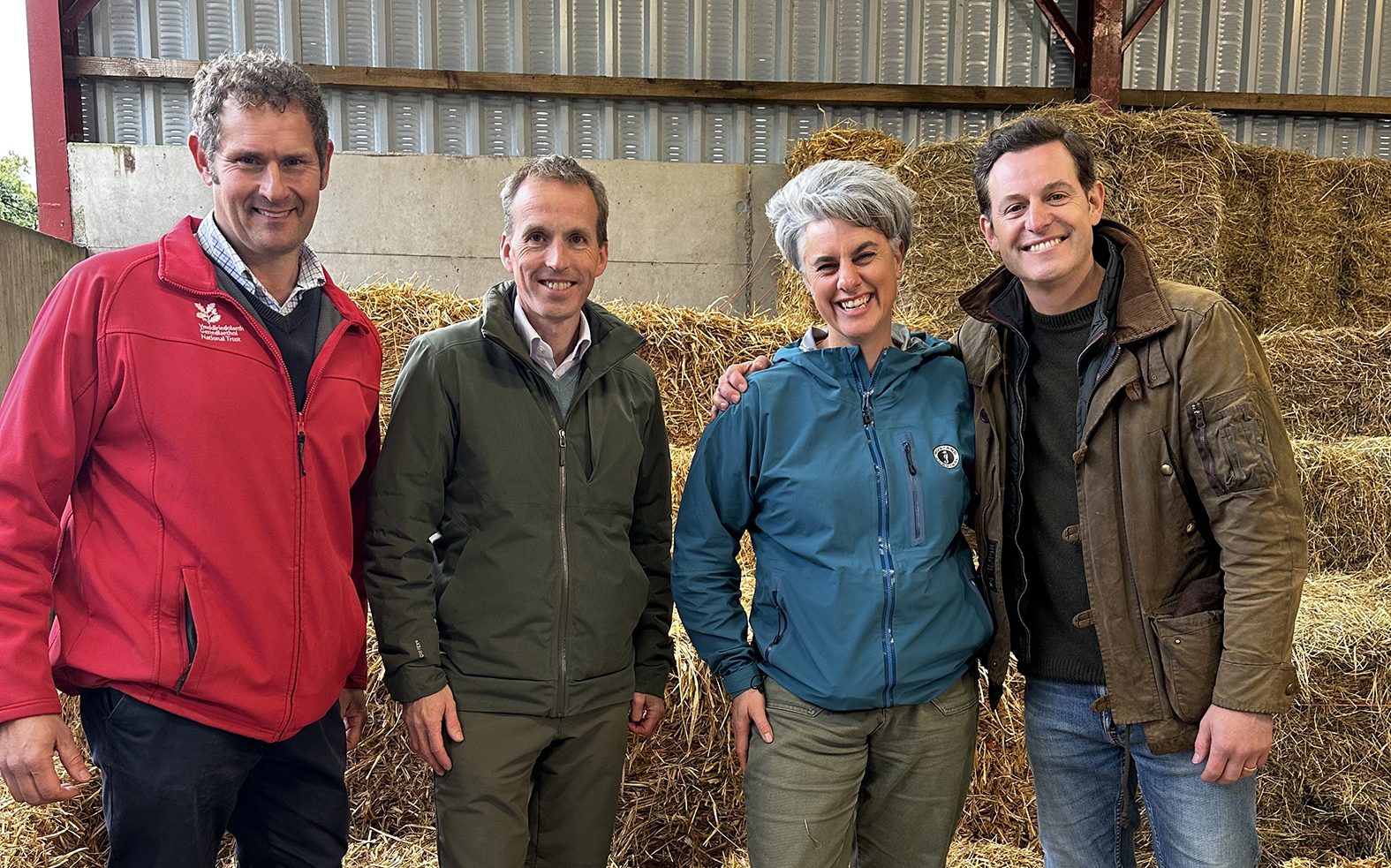
CATCH up with the trials, tribulations and triumphs of the finalists in the second series of ‘Our Dream Farm’, Channel 4’s popular tv programme, who are currently on our screens at 7pm on Saturday evenings; the ‘dream farm’ is in Eryri – formerly known as Snowdonia – and Farming Connect has been part of the process!
You can watch the final group of seven, ultra-hopeful candidates – some filmed with supportive better halves or relatives – as they are put through their farming paces in the second series of ‘Our Dream Farm’. Presented by popular tv personality, farmer and countryside expert Matt Baker, this year’s ‘dream farm’ with its mix of mountain pasture, woodlands and lowland is in one of the most jaw-droppingly spectacular locations in Wales.
Acknowledged as ‘the opportunity of a lifetime’, a 15 year-long tenancy of the 248-hectare farm, which includes a beautifully refurbished house and numerous outbuildings owned and managed by National Trust Wales, is the amazing prize up for grabs.
Farming Connect became part of the selection process when one of its mentors and Agrisgôp Leaders, Caroline Dawson, was invited to mentor and tutor the finalists in an on-farm workshop she designed and led. Caroline, a specialist diversification and agri-food expert from North Wales, began her day with an ice-breaker activity.
“I asked each member of the group to sketch a picture of themselves and list their strengths.
“There were lots of incredulous laughs at first but they all quickly realised the real challenge had started, because it’s not easy to describe yourself in a way that demonstrates what makes you more knowledgeable, more focused, more tenacious and more able – in other words the best tenant – to manage this amazing farm,” said Caroline.
Throughout the duration of Caroline’s day-long workshop, which took place in one of the farm’s specially re-purposed ‘picture perfect’ barns, eagle-eyed judges Giles Hunt, Land and Estates Director for the National Trust and Trystan Edwards, General Manager for Eryri National Trust Cymru joined Matt Baker to observe the whole process as Caroline put the final seven – whittled down from the original 11 applicants – through a series of exercises.
National Trust Cymru purchased this farm in 2012, following a successful public appeal. Until 2020 they ran it in partnership with Wales YFC, after which it was managed by five YFC scholars through subsequent shorter-term tenancies. The conservation charity now wants to hand over the reins longer term, giving the new tenants sufficient time to combine sustainable land management and conservation principles with developing a resilient, profitable, diversified farm business. In addition to managing the farm’s sheep flocks, they will need to implement a new business plan which capitalises on the high number of tourists who visit Eryri each year.
The steep surrounding land is insufficiently productive for large stock numbers but there is significant potential to diversify. Caroline, an experienced facilitator, devised activities that required each contestant to explain how they planned to capitalise on the opportunities to attract, accommodate and manage revenue-earning activities for the nature lovers, walkers, climbers, cyclists and water-sports enthusiasts who flock to the area every year. Each candidate had to demonstrate their vision, showing they had the confidence and ability to produce and implement the best business plan to preserve the heritage of the farm with its unique biodiversity, while safeguarding its long-term viability through tourism.
Each programme in the current series will feature various challenges and practical exercises with applicants eliminated one at a time until the names of the winner are revealed in the final episode of Series 2.
“Tenancies of this calibre are extremely rare. I feel hugely privileged to have met each of the brilliant candidates and played some small part in a process that will lead to a life-changing opportunity for the ultimate winner or winners,” said Caroline.
-
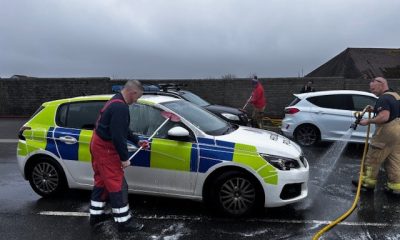
 Charity7 days ago
Charity7 days agoEmergency services unite for charity at Pembroke Dock Fire Station
-

 Sport7 days ago
Sport7 days agoKildunne hat-trick rips Wales apart in record-breaking Six Nations clash
-

 Community7 days ago
Community7 days agoTenby comes alive with eccentricity as Steampunk Festival returns in style
-
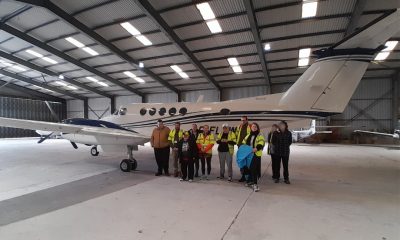
 Education7 days ago
Education7 days agoSupported employment learners take off on airport adventure
-

 Community6 days ago
Community6 days agoFuneral arrangements confirmed for popular local entertainer, Matt Baker
-

 Business4 days ago
Business4 days agoSpaceX eyes Milford Haven for new UK facility
-

 Crime5 days ago
Crime5 days agoPembrokeshire farm worker accused of threatening to burn employer’s farm
-

 Crime5 days ago
Crime5 days ago‘Yeah but no but’ insult to female officer lands Monkton man with court fine











